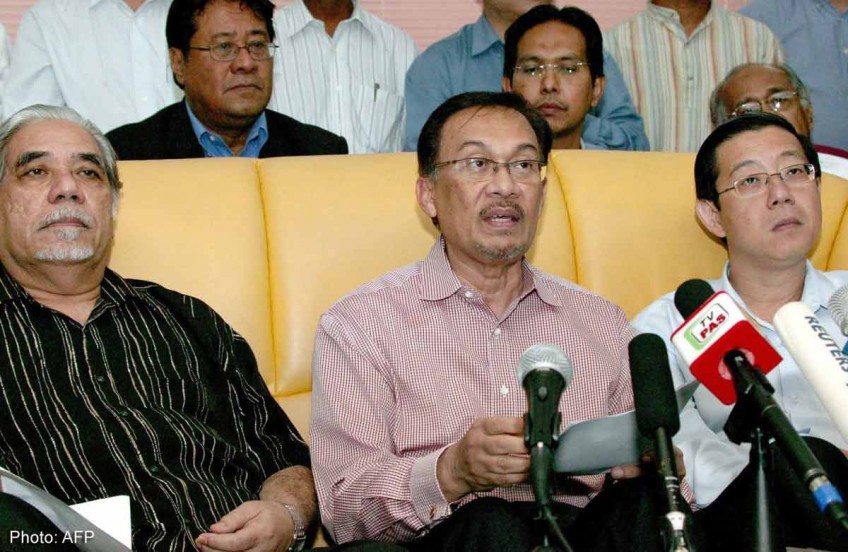Anwar's opposition alliance falls apart

KUALA LUMPUR - The Malaysian opposition political alliance that had threatened to unseat the country's long-ruling regime is no more, one of its three component parties declared Tuesday, following bitter disputes over policy.
Democratic Action Party (DAP) chief Lim Guan Eng said his party would no longer work with its former partner, the Pan-Malaysian Islamic Party (PAS), with whom the DAP has clashed over the latter's calls for strict Islamic law.
"Pakatan Rakyat (People's Pact) therefore ceases to exist," Lim said in a statement.
Pakatan Rakyat was formed in 2008, uniting opposition parties that had long been pushed around by the governing coalition, dominated by the United Malays National Organisation (UMNO) since independence in 1957.
Pakatan won 52 per cent of the popular vote in 2013 elections, tapping into growing resentment of UMNO authoritarianism and recurring corruption scandals.
It failed to take power due to UMNO gerrymandering, but its stunning performance under leader Anwar Ibrahim -- jailed earlier this year on sodomy charges widely seen as trumped up by the government -- had raised the spectre of a historic change of power.
Pakatan's break-up follows increasing rancour between the secular DAP, which represents mostly ethnic Chinese, and PAS, which represents Malay Muslims -- the majority group in the multiracial country.
Anwar's diverse People's Justice Party (PKR) was the other component.
Lim said the DAP would continue to work with PKR and "all other forces who aspire to see the end" of the ruling regime.
The DAP holds 37 of 222 seats in Malaysia's parliament, the PKR 28, and PAS 21.
Tan Seng Keat, an analyst with the Merdeka Centre for Opinion Research, said the impact is difficult to predict.
UMNO and its coalition are racked by infighting of their own, as concerns over the economy and damaging financial scandals have further raised the possibility of defeat in the next polls, due by 2018.
Pakatan's apparent breakup could throw Malaysian politics wide open, Tan said.
"The ripple effect of this is that there will be a political realignment in Malaysia over the next few years, with some in the (ruling coalition) defecting as well," he said.
The DAP-PAS divorce had long been viewed as inevitable by some political observers, given their ideological differences.
Disputes over PAS's calls for Islamic criminal penalties such as the severing of limbs for theft had reached a boil in recent months.
Earlier this month, a PAS party congress saw Islamic conservatives sweep its top leadership and approve a motion to sever ties with the DAP.